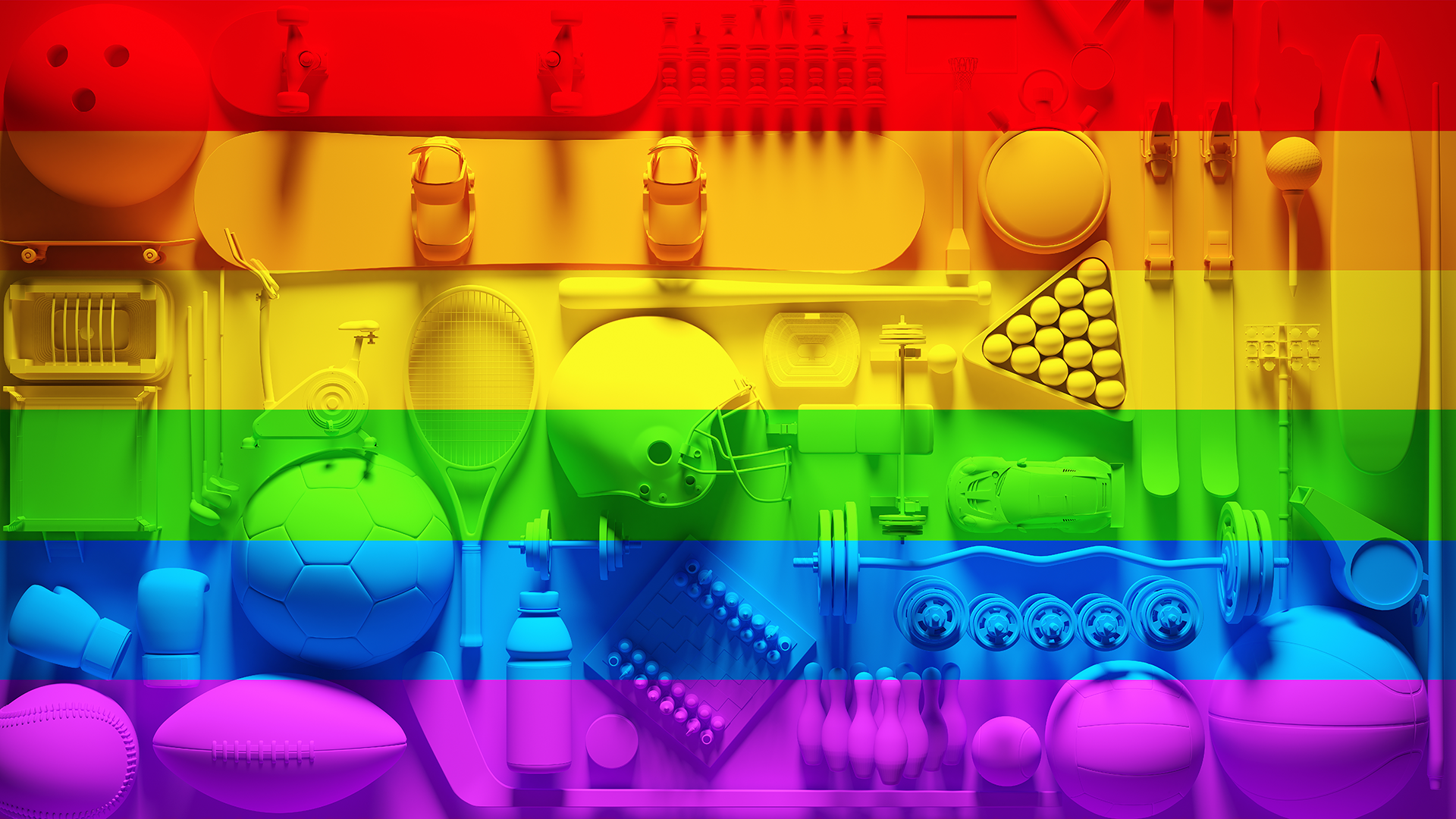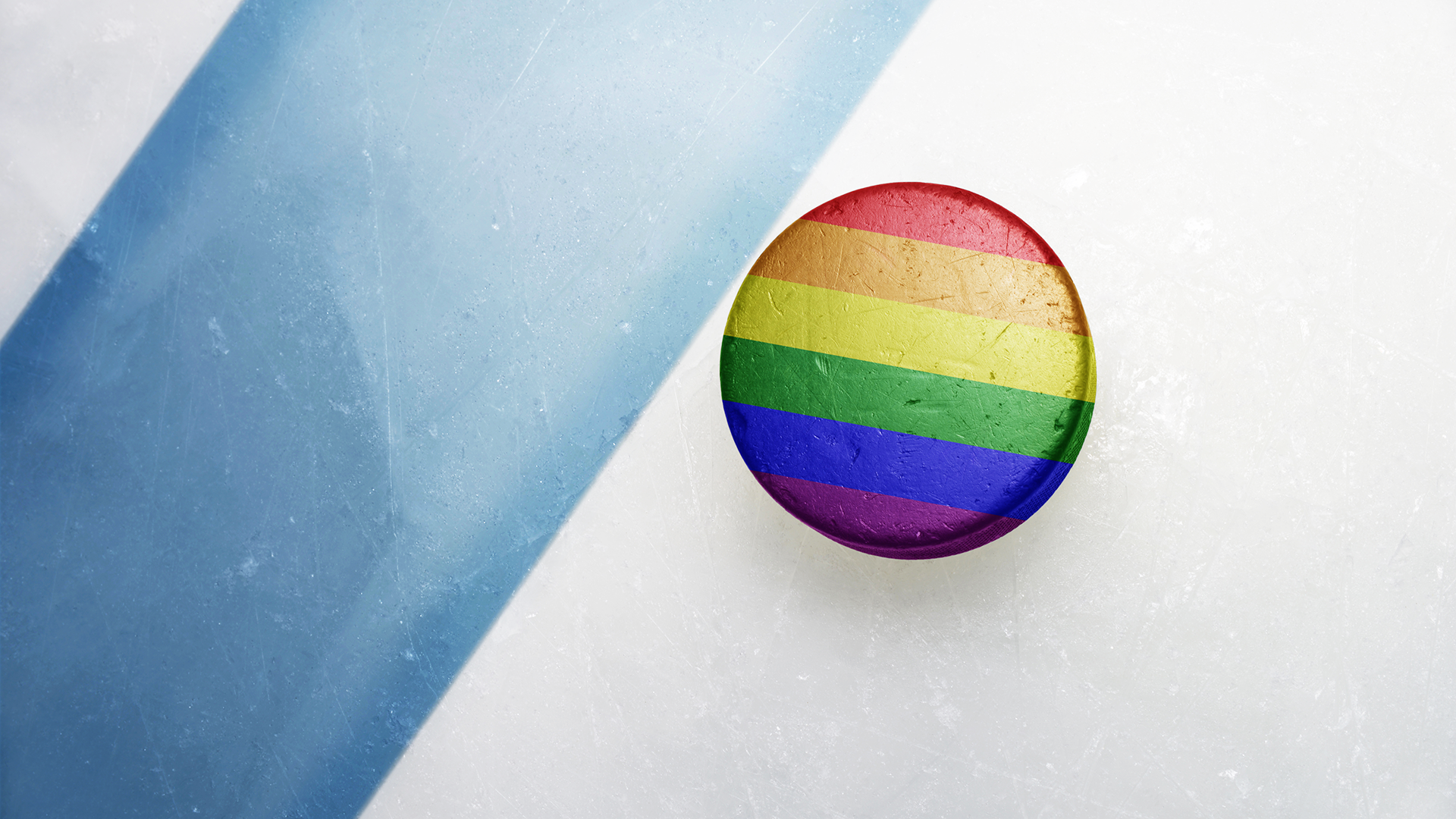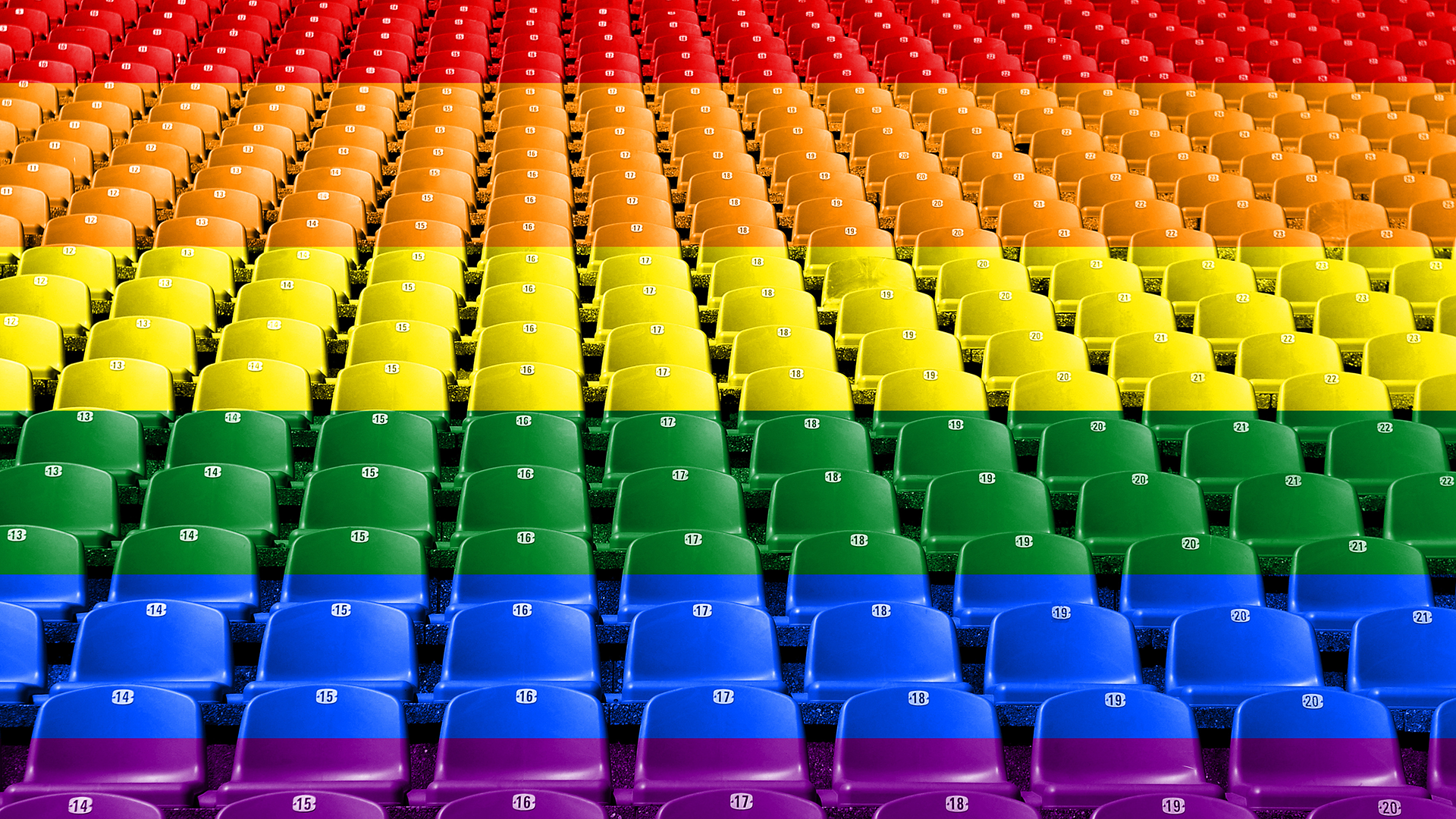Queer Athletics and Community Building
The biggest LGBTQ+ recreational hockey league in the world makes its home in Madison, serving as a model of inclusion for all athletics.
Organized, community-based LGBTQ+ athletic leagues are vital, proliferating sites of belonging for queer identifying people across the United States and North America. Mainstream sports in the U.S. have a long history of queer athletes forced to varying degrees to hide their identities in order to play the game they love. At a time of escalating efforts to ban some LGBTQ+ youth in sports, along with inconsistent, potentially invasive and stigmatizing rules imposed on transgender athletes at elite and professional levels, local LGBTQ+ athletic teams, leagues, and associations can serve as models of inclusivity — resisting norms governing how we conceive of competitive sport, play, performance, excellence, and the myriad benefits that participation in athletics confer on human beings.

Their existence also adds to long historical evidence demonstrating how LGBTQ+ people, in the face of enduring forms of marginalization, have employed their strength, creativity, and compassion to synthesize their own formations of community — to claim their right to joy, safety, health, well-being and connection.
Wisconsin has a decades-long history of organized LGBTQ+ recreational and amateur athletics across a range of individual sports — from softball to hockey, rugby, volleyball, bowling, and roller derby. A national stand-out among these is the Madison Gay Hockey Association, a seventeen year old ice hockey league founded by Madison resident, LGBTQ+ leader, and publisher of Our Lives magazine, Patrick Farabaugh.
Farabaugh began the league from scratch in late 2005, having returned to the midwest from New York City and a number years spent in itinerancy — moving from place to place — not uncommon for LGBTQ+ youth. Having found an important point of connection competing in a gay hockey league in New York, he struggled to locate that same space of community upon acclimating to Madison. Instead of indulging an impulse to pack up and move again, he decided to create that community in Wisconsin.
“I wanted to build a radically different model from other queer sports teams,” stated Farabough. He shared that many LGBTQ+ recreational sports fall under the category of “bar leagues” — formed as an extension of the social network that coheres around taverns. They’re often tethered to the space of the bar and sponsored by the business. While these are important spaces for queer athletics, for those who struggle with addiction or high risk behavior, there are fewer alternatives.

I decided to be very intentional when building the framework for the league — lowering three common barriers to access in the sport of ice hockey: cost, skill, and culture,” Farabough shared.
Ice hockey is a high cost sport, both to subsidize ice time via league dues and purchase equipment. MGHA maintains a financial aid program offering assistance with league fees and gear for those facing financial hardship.
Hockey has a relatively steep learning curve. Experiencing alienation from many gender separate, cis heterosexist athletics from childhood, many LGBTQ+ people never gain an introduction to ice hockey. Farabough created MGHA to welcome any participant — including a person who has never played — and helps them cultivate the skill with teaching and practice.
Finally, reframing the culture of ice hockey, and competitive sports in general, is essential to the mission of MGHA. The gender separate sports shaping norms of American athletic history, along with a long culture of heterosexism, have rendered them unwelcoming, even unsafe spaces for many LGBTQ+ people. Not only does the Madison Gay Hockey Association try to upend this norm, from its inception it has strived for gender and trans-inclusivity, with co-ed locker rooms since its beginning in 2005.

In 2023, MGHA stands as the largest LGBTQ+ hockey league in the world, rivaling in size leagues in major cities like New York City and Toronto. It has over 250 players and sixteen competing teams, and keeps growing.
“I see queer ice hockey as a ‘bridge sport,” says Farabough, “a bridge to a community.
Farabough is enthusiastic to observe a “renaissance” in queer sports. He views the queer and trans-inclusive ethics of roller derby as an analog to what he’s tried to do with MGHA. He notes that a new LGBTQ+ soccer league is under development to augment the queer recreational sports scene in Madison, founded by a former board member of MGHA.
 Passport
Passport






Follow Us